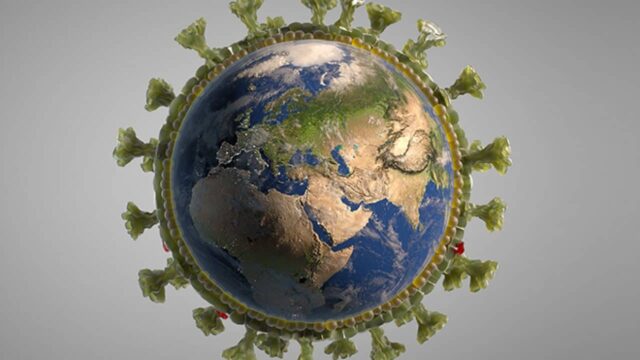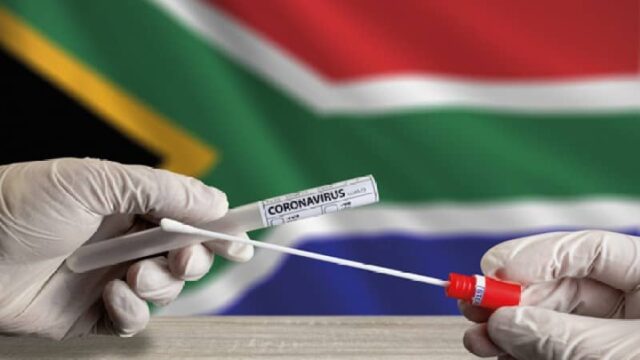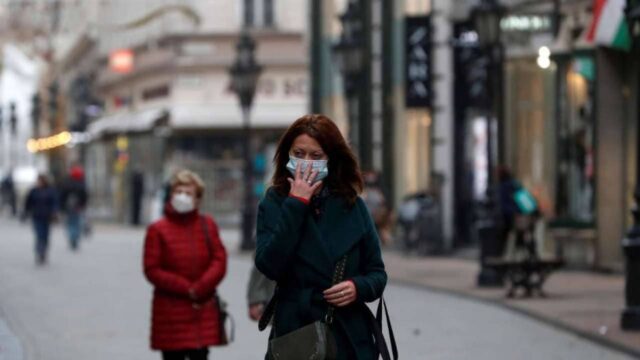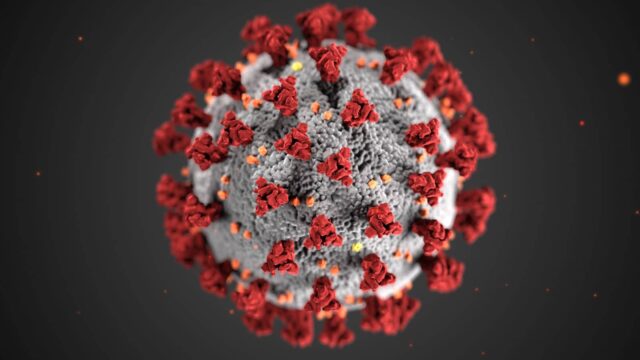The world was hit with the pandemic in the beginning of the decade. Complete lockdowns and travel restrictions became the norm overnight. The end of the first wave in India saw people returning to offices so that work could progress once again. Today, almost two years later, we have dared to open up the colleges, the offices and the schools in an attempt to bring normality back into our daily lives.
All of us are collectively trying to move on with our lives while keeping our heaven-wards departed family members in our thoughts and prayers. A desperate attempt by the entire country to bring things back to the ‘normal’ we are used to.
However, the pandemic still lingers on and the virus awaits with its pitchfork and claws as the news of an absolutely new and deadly variant comes to the forefront.
The New Variant
Currently, a new and deadly variant of COVID-19 has been discovered in South Africa. The new variant has been named Omicron by the World Health Organization (WHO) following the trend of naming the variants after Greek coded names like the Alpha and Delta variants.
Early predictions say that this variant is highly mutated and extremely transmissible, possibly even more so than Delta. The variant is extremely different from the original virus in Wuhan hence, scientists are worried whether our vaccines will work against Omicron.
Professor Tulio de Oliveira, the director of the Centre for Epidemic Response and Innovation in South Africa, said there is an “unusual constellation of mutations” and that it is “very different” to other variants that have circulated.
“This variant did surprise us, it has a big jump on evolution [and] many more mutations that we expected,” he said.
Professor Richard Lessells, from the University of KwaZulu-Natal in South Africa, said: “They give us concern that this virus might have enhanced transmissibility, enhanced ability to spread from person to person, but might also be able to get around parts of the immune system.”
Read More: ResearchED: How COVID-19 Vaccine Shots Can Potentially Benefit Mental Health
Which Countries Have Been Affected?
Many places have already been affected by this new strain. As the virus spreads, European countries have already imposed strict travel restrictions and tightened antivirus controls again.
1. Austria is seeing 10,000 new cases of COVID-19 every day and has hence, declared a 10-day nationwide lockdown.
2. Italy has started undergoing almost 13,000 new cases every single day so the government has restricted activities of unvaccinated people.
3. Americans are advised by their government to avoid Denmark as the number of daily cases crosses 5,000 and to not travel to Germany as COVID-19 explodes once again with 24,000 daily cases and the death toll keeps rising.
4. The 27 countries which are a part of the EU have suggested banning flights from South Africa as the virus keeps spreading in their most populous areas.
5. Britain has banned flights from South Africa and from five neighbouring countries as the number of daily cases reaches a whopping number of 37,000
6. The Czech Republic has declared a state of emergency as the cases have reached a high of 22,000 and do not look like they are going to cease anytime soon
7. Portugal has reimposed strict fines as numbers again rise to 3,000 daily from being below a thousand less than a couple weeks back
“Get your booster as soon as you can”, has been the consistent message from British Prime Minister Boris Johnson.
“It is by vaccinating our country that we have been able to get your staff back to their place of work, to open our theatres, our restaurants and get back for longer now than any comparator country, to something like normal life,” he said.
How Is India Dealing With The Crisis?
As the new variant spreads over the world, experts and scientists in India have reported that new cases of the infection are expected and anticipated. However, they have advised people to exercise caution quickly as the cases will rise as seen in the second wave if not prevented.
“India has better tools in hand now compared to two years ago,” said Vinod Scaria, a scientist at CSIR-Institute of Genomics and Integrative Biology (IGIB). He added the country, however, has to improve its vaccination drive, public health measures, health infrastructure and genomic surveillance to be better prepared.
“We have to use our precious time to vaccinate all eligible people with at least two doses. Closing the gap in the unvaccinated and second dose in the 45+ age group could provide a unique opportunity to minimise COVID-19 deaths,” he said.
“In addition, with children still unvaccinated and many adults yet to receive the second dose of vaccine, a mutant variant at this time can result in rapid transmission and increased severity of disease in these susceptible populations,” he added.
“At an individual level, compliance to pandemic norms like avoidance or limiting social gatherings, wearing masks in public spaces, and even indoors in homes with susceptible populations and adherence to hand sanitisation techniques should be followed,” said Dr. Balasubramanian.
“We must strictly follow the infection control guidelines and COVID-19 appropriate behaviour as part of our lifestyle,” he noted.
COVID-19 has become an inadvertent part of our lives and it is quite difficult to eradicate the virus completely from the globe. Our only options are to accept that it is a part of our lives, wear our masks and maintain social distance in an attempt to stay as safe as possible.
Image Sources: Google Images
Sources: NewIndianExpress, TheHindu, HopkinsMedicine, BBC +more
Meet The Blogger: Charlotte
This Post Is Tagged Under: pandemic, lockdowns, travel restrictions, COVID-19, South Africa, Omicron, World Health Organization (WHO), Alpha, Delta, Centre for Epidemic Response and Innovation, new strain, Austria, Italy, unvaccinated, Americans, Denmark, Germany, Britain, Czech Republic, Portugal, total nationwide lockdown, British Prime Minister, Boris Johnson, CSIR-Institute of Genomics and Integrative Biology (IGIB), vaccination drive, public health measures, health infrastructure, genomic surveillance, vaccinate, second dose, COVID-19 deaths, a mutant variant, rapid transmission, increased severity of disease
Read More:
Here’s How COVID-19 Is Feared To Cause Global Coffee Shortage





































